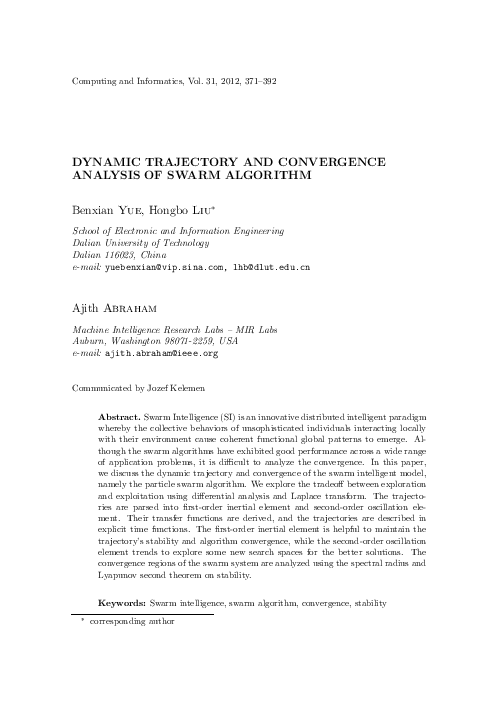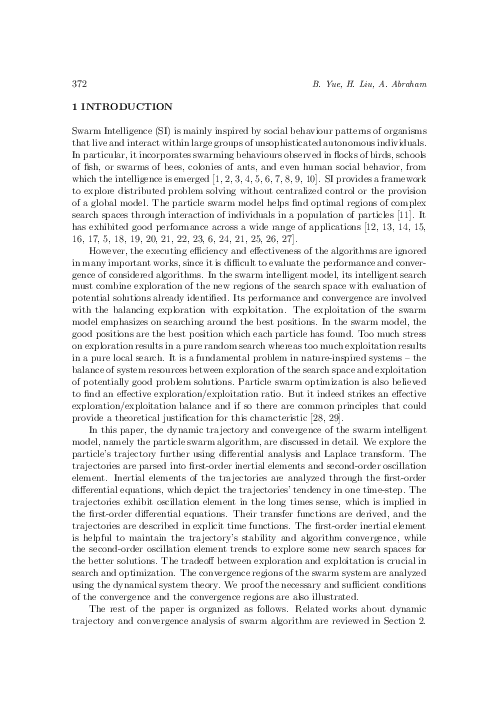Dynamic Trajectory and Convergence Analysis of Swarm Algorithm
keywords: Swarm intelligence, swarm algorithm, convergence, stability
Swarm Intelligence (SI) is an innovative distributed intelligent paradigm whereby the collective behaviors of unsophisticated individuals interacting locally with their environment cause coherent functional global patterns to emerge. Although the swarm algorithms have exhibited good performance across a wide range of application problems, it is difficult to analyze the convergence. In this paper, we discuss the dynamic trajectory and convergence of the swarm intelligent model, namely the particle swarm algorithm. We explore the tradeoff between exploration and exploitation using differential analysis and Laplace transform. The trajectories are parsed into first-order inertial element and second-order oscillation element. Their transfer functions are derived, and the trajectories are described in explicit time functions. The first-order inertial element is helpful to maintain the trajectory's stability and algorithm convergence, while the second-order oscillation element trends to explore some new search spaces for the better solutions. The convergence regions of the swarm system are analyzed using the spectral radius and Lyapunov second theorem on stability.
reference: Vol. 31, 2012, No. 2, pp. 371–392


